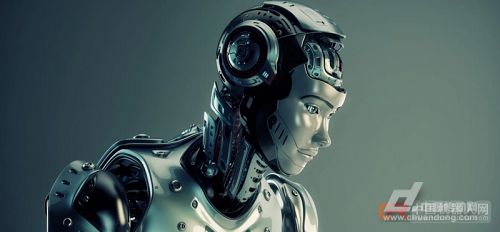With the rapid development of artificial intelligence and robotics, more people began to express their concerns about their emotions. Even Stephen Hawking said that one day, artificial intelligence robots will replace human beings as the dominant life form on Earth. The author of this article, Simon Chandler, believes that artificial intelligence and robots are currently the biggest threat to our society. What we fear should not be these robots, but the creators behind the robots.

Stephen Hawking said that one day, artificial intelligence robots will replace human beings as the dominant life form on Earth, and Elon Musk said something similar. However, in recent years, with the remarkable progress made by artificial intelligence and robots, the most urgent and real threat they pose to this society is actually not there.
Specifically, this threat is not caused by the possibility that artificial intelligence and robots will surpass their current specific service objectives (such as managing hedge funds or recruiting new employees) and resisting their owners. More precisely, the situation is exactly the opposite. It is precisely because these artificial intelligence devices and robots are able to serve their owners very efficiently and therefore have a threat to the society.
In fact, since robots and artificial intelligence devices have not demonstrated a little autonomy or independence so far, it is clear that they are not a "new form of life" as Hawking has said. They are more like an extension of those who create and use them. They are meticulous tools that enhance the ability of these people to perform a task or task.
Because they are an extension of the operators, they also pose a potential threat to the society. Because robots are designed and used by specific groups of people with specific values ​​and interests, this means that their actions will inevitably reflect and promote the values ​​and interests of these people. The values ​​and interests of these people are not necessarily for all groups. And personally agree. The superior efficiency and productivity of robots can provide obvious advantages to those who have sufficient resources to use them. These people may reshape the world at the expense of other people who do not have the same resources.
As long as you look at recent examples of artificial intelligence and machine learning algorithms that lead to bias, how artificial intelligence will exacerbate social, economic, and political inequalities in the future. For example, ProPublica, an online non-profit media group, published a study in May 2016 that showed that the re-crime evaluation algorithms used by multiple US states are biased against African-Americans, marking their mistakes as “high riskâ€. The probability of re-offenders was 44.9%, compared with 23.5% for whites. In addition, a research paper published in the "Science" magazine in April 2017 found that when machine learning tools learn a large number of vocabulary ideas from the Internet, they will obtain a kind of "for women and African Americans." Semantic prejudice of humanoids" (ie stereotyped impressions).
Prejudice is generated in this case because artificial intelligence devices and robots can only learn from the data and parameters they receive. Typically, these data and parameters are provided by those who design and use them, such as whites and privileged men who are at the top of the social pyramid. It is precisely because of this that artificial intelligence facial recognition software has always been unsatisfactory in recognizing faces of colored people. And it can also explain why artificial intelligence and robots operate in ways that serve and drive the interests of their manufacturers and owners.
In addition, artificial intelligence and robots will penetrate 24.7 million jobs by 2017 due to their outstanding efficiency, which means that they will imprint the manufacturer's logo on life and work. Some areas. They will make millions of workers lose their jobs. They will disrupt the rhythm of current family life. They will allow developed countries that have the ability to use them on a large scale to gain greater commercial advantages over developing countries. Ultimately, the peoples and classes that make and own them will gather higher global influence.
It is precisely because of this that the growing number of related arguments that give robot rights (even citizenship rights) can make people feel so uneasy. Because robots and artificial intelligence have acquired the property rights protection of their owners, they cannot be destroyed at will. In this way, it is clear that giving them “rights†means not only giving them the negative rights to protect themselves from destruction (because they already have them), but means giving them the ability to pursue their own goals without Positive rights interfered with by some people, for example, those who are afflicted by robotic ideas.
In other words, giving the robot this right is actually equivalent to giving the owner the special, protected status he needs to achieve his own purpose and achieve his own values ​​and interests. Then, the ability of these owners to use AI and robots to serve their own goals can go even further.
Finally, it is worth mentioning that one of the topics that often appears in discussions about artificial intelligence. Whether it is the European Parliament or research institutions, we often say that we need to ensure that artificial intelligence robots can learn and maintain human values. However, the question is: What values ​​do the robots learn and maintain? And who is the representative of this whole human being? Whether or not truly universal values ​​can be infused into intelligent robots, this argument can only show that what robots do can only produce moral, social, and economic results in one direction, so they can only act as The agent of certain values.
The worrying fact is that these robots are largely created and mastered by a certain group of companies and industrialists, so their capabilities are also likely to bring about obvious values ​​and interests for such a class. the benefits of.
Construction,Building, Nail,Strip Nail
Zhejiang Best Nail Industrial Co., Ltd. , https://www.beststaple.com